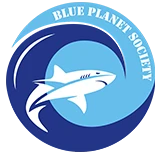
The harmful practices of trophy fishing
While much is talked about the impact of commercial fishing on fish populations and the ocean’s health, recreational and trophy fishing also play a role in contributing to marine biodiversity decline. These don’t usually get the same conservation spotlight as people might feel there are more pressing issues when it comes to protecting the oceans. Supertrawlers, illegal fishing, ghost nets… those are urgent matters which need attention and immediate action. However, when we look at fishing as a whole, there’s, unfortunately, more to worry about.










